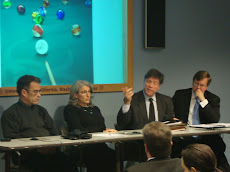... Dr Fletcher, a highly respected retired pathologist and former chief scientific officer at the Department of Health, said: ‘‘From all the considerable reports I have read, Dr Kelly did not lose enough blood to cause his death.From the Daily Mail:
“He would have had to lose three to four pints of blood but all the known evidence shows there was only a small amount at the scene. I don’t believe a coroner would determine he died of haemorrhage based on the evidence.”Although an inquest was opened and a coroner assigned, it was decided that Lord Hutton himself would have the power to determine cause of death and that his public inquiry would effectively act as an inquest. r Fletcher said: “With respect, Lord Hutton is not a coroner and there are many areas in the medical evidence which need to be analysed carefully by an actual coroner.“There are so many unanswered questions that this Government should make it a priority to hold a proper and full inquest with people giving evidence on oath.” ...
... In addition, it was recently disclosed that Dr Kelly’s death certificate was not properly completed.Meanwhile, the Independent today discusses the conclusive evidence of the illegality of the 2003 Iraq war, which was made clear to Tony Blair before he went to war. David Kelly's potential to place a monkey wrench in Tony Blair's inexorable march to war may have led to his death.
It was not signed by a doctor or coroner and does not state a place of death, leaving open the possibility he died somewhere other than where his body was found.
Furthermore, the pruning knife has been revealed to have had no fingerprints on it.
Campaigners are aggrieved by a mysterious decision to classify all evidence relating to the post-mortem for 70 years.
But they are encouraged by the fact that one of their most vocal supporters, Lib Dem MP Norman Baker, who has written a book questioning the Hutton verdict, is now a member of the Coalition as a Transport Minister.
A spokeswoman for Dominic Grieve said last night: ‘Mr Grieve expressed concerns about this issue when in opposition and has, since taking office as Attorney General, been exploring with ministerial colleagues any actions that may be taken.
‘No decisions have been made.’
Hans Blix will testify to the Chilcott Inquiry Tuesday about his disagreements with Blair's claims about Iraqi weapons. UPDATE: Blix says after 500 inspections and no WMD found, Iraq war was clearly illegal.
Carne Ross was the UK's Iraq expert at the UN from 1997 to 2002. He describes obstacles thrown up by the Foreign Office to limit his testimony to the Chilcott Inquiry in today's Guardian: specifically, he debunks the Blair claims about Saddam's nuclear capability and exaggerated claims of anthrax danger. These were subjects David Kelly had also debunked (anonymously) to the BBC in 2003. Kelly's death occurred several days after he was leaked as the source.
Playing by the rules, I had submitted my written testimony to Chilcot before my appearance. In the hours before my appearance, invited to visit the Foreign Office to see further documents (mostly irrelevant), an official repeatedly sought to persuade me to delete references to certain documents in my testimony.
He told me that the Cabinet Office wanted the removal of a critical reference in my evidence to a memo from a senior Foreign Office official to the foreign secretary's special adviser, in which the official pointed out, with mandarin understatement, that the paper sent that week to the Parliamentary Labour Party dramatically – and inaccurately – altered the UK's assessment of Iraq's nuclear threat.Last week, the Express reported that Mr. Blair has run up a bill for his security of 6 million pounds a year, courtesy of the British taxpayer. That is about 25,000 dollars a day. Tony's made sure there will be no David Kelly ending for him.
In a clear example of the exaggeration of Iraq's military capabilities, that paper claimed that if Iraq's programmes remained unchecked, it could develop a nuclear device within five years.
The official's memo pointed out that this was not, in fact, the UK assessment: the UK believed that Iraq's nuclear programme had been checked by sanctions.
The paper to the PLP was instead sent by the foreign secretary to "brief" the wider cabinet. This paper was pure overstated propaganda, filled with ludicrous statements like "one teaspoon of anthrax can kill a million people". The paper was soon made public, as part of the campaign to create public hysteria...
There is a clear solution to these problems: break down the continued obstruction by the bureaucracy by releasing the documents – all of them. Only the most secret documents deserve continued protection, and there are very few of these. The vast majority of relevant documents relate to policy discussion inside the government before the war. Though profoundly embarrassing, there is little here that damages national security, except in the hysterical assessment of officials protecting their own reputation. Nick Clegg said a few weeks ago that almost all documents must now be released. He is right.










No comments:
Post a Comment